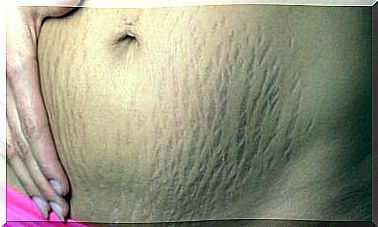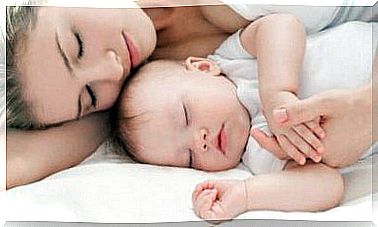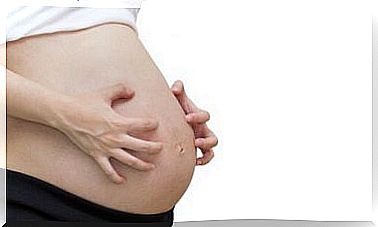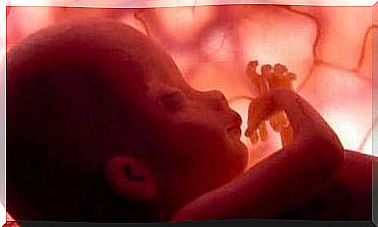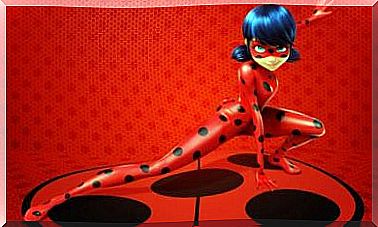In Dad’s Arms: A Wonderful Place To Grow Up
We know very well that few places are safer, more loving and more important to the development of the baby than his mother’s arms. But … what about being in dad’s arms? It is obvious that they cannot breastfeed, that they do not give birth etc., but their closeness, their affection and even contact with their skin stand out as incredibly powerful elements for the newborn.
Let’s just take an example. Hundreds and hundreds of hospitals nowadays have a wonderful procedure. While the mother who gave birth by cesarean is recovering from the anesthesia, the father can try his hand at baby carrier if he wishes. With a little difficulty, emotion and fear, they take off their shirts to welcome the baby on their chest.
Few things are as comforting as this picture. The newborn regulates his own temperature, relieves stress and has this first and necessary contact with those who will be part of his life. His father. It is an initiative that undoubtedly should take place in all hospitals. Daddy’s arms, as we can guess, become a safe, warm and important place in a child’s life.
Growing up in dad’s arms
There is a lot of talk about the mother’s hormone fluctuations during pregnancy and breastfeeding. We all know them and no doubt many of our readers will have experienced what it means in many cases. As amazing as it may sound, the father’s brain also experiences a hormonal and emotional swing during this time.
Less testosterone with paternity
According to a study conducted by the University of Northwestern, Illinois, testosterone levels drop considerably when a man becomes a father.
- This hormone performs its function during the period of courtship, passion and couple intimacy. The highest peaks occur especially in the first phase, that of seduction, in which everyone must give their best to attract the desired person.
- However, when the partner is pregnant and then gives birth, the father’s brain does not need testosterone. The only need is to ensure the survival of his son, to look after him and take care of him, putting him in dad’s arms.
The “maternal” instinct is not something for women alone
We all, to a large extent, are born with the natural instinct to care for and feel affection for our children. We can spend part of our life thinking that this is not the case, but, the act of childbirth and the feeling in our arms that little creature activates the so-called “paternity network” in us.
- Brain structures such as the amygdala, the insula lobe or the nucleus accumbens are part of this internal circuit.
- In women it is almost a “primitive” instinct. Men, for their part, develop this instinct intensely by being close to the child.
- In fact, according to research conducted by the University of Bar-Ilan in Israel, a man’s brain becomes more “maternal” if it takes on more functions.
Aspects such as co-sleeping, bottle feeding the baby, bathing him or cradling him in your arms, intensify this instinct.
In contact with dad’s skin
We know that the “skin to skin” method is equally beneficial even if it is practiced by the father who rests the child on his chest. This exceptional contact will always be better than that with the cradle. Being in dad’s arms will always be able to alleviate more fears than a simple blanket or a caress.
Kangaroo therapy is not reserved only for mothers, because nowadays a father knows very well that he is not a mere spectator. He knows that raising a child is a team effort. If the mother is breastfeeding , even the father can offer his chest to make the baby fall asleep, making him feel the safety of a heart that is always close. That will defend him from any danger and that will encourage him to realize all his dreams.
Many studies support the need to practice the delicate art of affection in the event that babies are born premature. Being in dad’s arms means that:
- We favor the regulation of temperature and breathing.
- Infections decrease.
- We favor neuronal maturation.
- Increase the quality of the baby’s rest.
- We offer tactile, auditory and kinesthetic stimulation.
- Weight gain is promoted.
- Babies cry less and adapt better to extrauterine life.
To conclude. We know that the importance of the mother in the day-to-day life of a child is always talked about. In this first stage, a baby needs only three things: mother’s milk, affection, routine.
Apart from breastfeeding, the father can take care of everything else and contribute hugs, affection and attention to the full development of this creature.
We must all be active protagonists in the rearing of this child: mothers and fathers.



